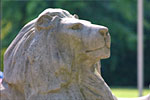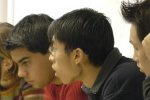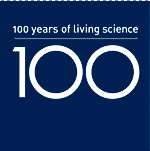Gordon Jackson
(Chemical Engineering, 1972; PhD, 1976)
Fondly remembers his time here in the 70s
Listen to the interview or read the transcript below:
Gordon Jackson: One of my favourite memories, I think, is actually the location and going on walks. So, yesterday morning I went up to Kensington Gardens and the day before I went up to Harrods to get a gateaux, which is was what I would sometimes do as a student, maybe once a term, and I felt it was so extravagant. But it was just fun. So, I had to do it again.
Interviewer: Do you have any amusing stories from your time as a student. Did you get up to any high jinks or anything like that whilst you were here?
GJ No, I was actually involved in social clubs committee. I was chairman of social clubs committee for probably three or four years and people would always kid me that was a position in the union that had the option of having a halls of residence room and so, the joke was always, how many years have you been in the halls of residence? I don't feel it was the record but I was up there, I think it was maybe four years or something like that, it should have been mine. I started my degree on, there was a puffed compiler in the basement of electrical engineering and twice a day we could get, I think it was a 23k ram memory. And then I stayed on, did my PhD and for my PhD the maximum memory for a programme was, I think, around 59k and we'd get, I'd get one ram a day and if you arrived at mechanical engineering in the morning and there are two sheets of paper, you knew it wasn't a good day. I had a programme that had about 3,000 cards and always hoped that they wouldn't get dropped, you were always careful to see you did put the card correctly because otherwise you'd lost a day.
Interviewer: How long has it been since you've been back, at Imperial?
GJ Well, I probably get back about every couple of years because Professor Steve Richardson who's a head of department, chemical engineering, he and I hung out many hours, we were in the same year, did our post-grad together so, I usually come back and see him and come here probably every couple of years.
Interviewer: How do you think the campus has changed since your original time at Imperial and now, when you're visiting today?
GJ In some ways, it hasn't, in other ways it has. I see a lot of construction, some of the original buildings are still there, hidden behind. We went on a tour of the chemical engineering department and with the former lab service mechanical chap who was here in my day and we were being introduced to the lab there and he said, I put that in and so, but they're renovating it. So, I think it's a bit of both. It seems the same intensity; the same passion for the application of science and engineering is still there. That seems to be the same, unchanged. I know in talking with Steve Richardson that one of the things that has changed is the funding mechanism and in some ways I went to college at a time when people of modest means could do it and now it's a little more difficult, particularly coming to London to do it and it makes me sad.
Interviewer: Have you seen many of your friends, your old friends, from your year, here this weekend?
GJ Seen a few, not a whole lot from my year but around the time. There were lots of highlights but one highlight was a couple in the departmental gathering where, when I was doing post-grad, I did some lectures in advance computer techniques for second year chemical engineering students. And I'd always wondered if I, I'd always felt I hadn't done a particularly good job because I didn't quite understand the teaching process and I lost people and didn't realise I'd lost them. I did that for three years and there was one chap there from the second year who said, oh, I wanted to tell you that that one thing you said about documenting computer programmes, he said, I've done that all my life, now I own a software company. So, that was oh, maybe there was some value in what I did.
Interviewer: So, how do you feel Imperial has helped you achieve what you have in your career up to now, how much of a role has you life at Imperial affected the rest of your life?
GJ  Well, how Imperial has helped me I think when I talk to my kids, I have three daughters, and when I talk to them about college I say, I think there are two things, or things I noted as an under grad, things as a post-grad and I said I think as an undergrad what I learnt was how to research, how to find information. Then it was on five by three cards, the index for the library and it was quite a challenge. Now, of course you have Google but the principles of searching are the same, finding key words. I think what I learnt was the principles of analysing information, of figuring out a strategy for doing something, I also told them that I learnt really how to write, technically, do technical writing. We had about a 30, 20, 30 page report every week for three years and at the end of that you learn how to write. I stayed in computers so, I didn’t really, although initially in chemical engineering, I'm now involved in custom web programmes for engineering companies so, I'm more in the management side but the undergraduate, tackling a problem, looking at it is probably what I learnt.
Well, how Imperial has helped me I think when I talk to my kids, I have three daughters, and when I talk to them about college I say, I think there are two things, or things I noted as an under grad, things as a post-grad and I said I think as an undergrad what I learnt was how to research, how to find information. Then it was on five by three cards, the index for the library and it was quite a challenge. Now, of course you have Google but the principles of searching are the same, finding key words. I think what I learnt was the principles of analysing information, of figuring out a strategy for doing something, I also told them that I learnt really how to write, technically, do technical writing. We had about a 30, 20, 30 page report every week for three years and at the end of that you learn how to write. I stayed in computers so, I didn’t really, although initially in chemical engineering, I'm now involved in custom web programmes for engineering companies so, I'm more in the management side but the undergraduate, tackling a problem, looking at it is probably what I learnt.
On the postgraduate side, I think what I learnt is how little I knew about one subject at one university and that's a great thing to learn. Then, I think, my supervisor would read a 120 page thesis and completely dissect it and I'd had to go away for three months. Of course, in those days, there was no word processor so, when you re-wrote your thesis you started at page one on a typewriter and you typed it double-spacing to meet the University of London requirements. So, it was a little different but you probably were more careful, I don't know.
I think one thing that really was nothing to do with, directly with technical, but I think it was something I think I remember from the college is, I was very involved in the chaplaincy and I didn't come from a religious family, my parents weren't into that. But I got involved in the chaplaincy and I think we went on wine tasting trips to France and we did all sorts of crazy things. And as a post grad what happened was, I ended up just feeling, it was a time when you're writing your thesis that the world is a very crazy place and so is your life and so I started really thinking, boy, this is so crazy. But, what came out of all of that was really a spiritual search and so, for me that was neat and it really has impacted my whole life. It started off just saying well, why am I studying? Is there any point in studying? The vicar then, chaplain rather, would always say don't you think there's truth to find and I thought, yes. And he said why do you think there is and I realised it was a step of faith. So, to me that's in addition to everything else, it was just a neat life changing experience.
What I really learnt at Imperial were the principles of the subject. Not necessarily the knowledge, although you need knowledge and I think that you can miss that if you get caught up in the knowledge and therefore as I've grown older, I have to have the discipline to do things, to go on walks, to go to museums, to listen to music, because in the end what happens is that fosters and encourages creativity and I think when you're in a place of science and technology, you're with a very high standard where there's certainly a lot of knowledge. You've got to realise there's, you've got to feed creativity because in the end it's the mixture that's going to make a difference to society.
© 2007 Imperial College London

Through the first decade of the twenty-first century the campaign seeks to philanthropically raise £207 million from Imperial’s alumni, staff and friends, and donations from charitable foundations and industry.
Where your support can make a differenceGive now

Imperial’s Centenary Year provides an opportunity to recognise and celebrate members of the Imperial community.
View staff and student portraits
